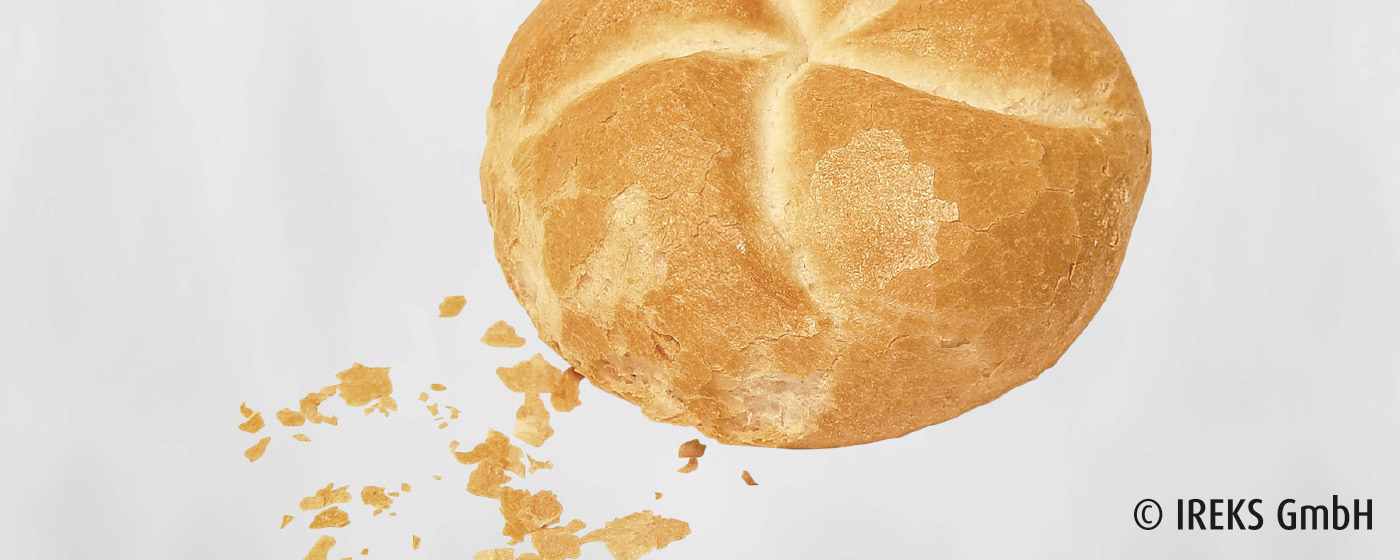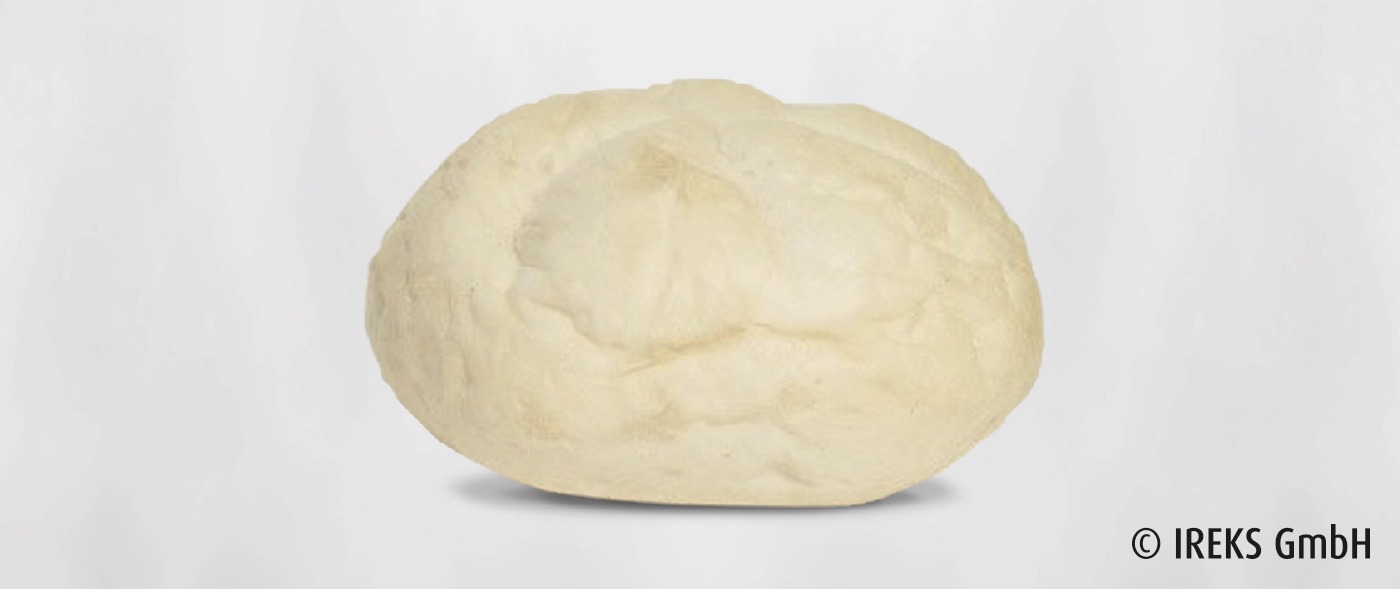Use of a wheat sponge
Depending on the wheat flour quality, the use of a wheat sponge (dough yield 160) with a long maturing time (12 – 18 hours) is recommended to improve the quality. The percentage of wheat sponge in dependency to flour quality is 10 – 20 % of the total flour.
Here, the following advantages are achieved:
- better machinability of the doughs
- lower crust splintering
- moister and softer crumb
- more aromatic smell and taste
In the case of the standing time, attention has to be paid that a not too high formation of acid takes place in the wheat sponge. A too high degree of acidity benefits an undesired adverse effect in regard to taste and reduces the volume of the baked goods. By regularly checking the pH value and the degree of acidity, this can be avoided. In addition, dried sourdoughs, such as IREKS-WEIZENSAUER, can also be used for a general enhancement of quality and a rounding off of taste.
Soaked grain and hot soaked grain
For the production of pre-baked speciality bread with seeds and/or various grain products, such as flakes and coarse grain, for example, soaked grain or hot soaked grain are recommended. These lead to a better water storage and moistness, which counteracts rapid drying out.
Dough temperature
The dough temperature should be 24 – 26° C. With too cool doughs, some upper surface dampness appears. As a result, stronger dusting with flour is required when processing via roll installations to guarantee perfect machinability of the doughs. As a result of a too strong dusting with flour of the dough pieces, a drying out of the upper surface can occur.
In the case of too warm doughs, the upper surface of the dough pieces dries out too quickly during processing via machine and a partial formation of skin on the dough pieces can result. In both cases, a splintering of the crust can take place after baking has been completed.
Scaling weight
In the case of pre-baked goods, the scaling weight should be increased slightly (5 – 8 %). As a result of the two baking phases, a larger loss of volume takes place than with rolls which are baked in one baking process.
Final proof time
It is important for the stability of the dough pieces to guarantee a controlled final proof of 90 – 120 minutes at approx. 20° C and an air humidity of 75 – 80 %. In this way, faults such as wrinkling and splintering of the crust can be avoided. Over and above, the crust crack behaviour is improved.
An extension of the final proof time to up to 5 hours (adjustment of the fermentation
temperature and air humidity) has positive effects on the crumb moistness as well as on the smell and taste of the baked goods. At no time during the final proof may skinning of the dough pieces occur.
A too high volume of fermentation of the dough pieces can lead to faults in the baked goods such as a collapsed upper surface, a hollow base and/or wrinkling. Moreover, a high fermentation volume leads to a stronger crust splintering.


